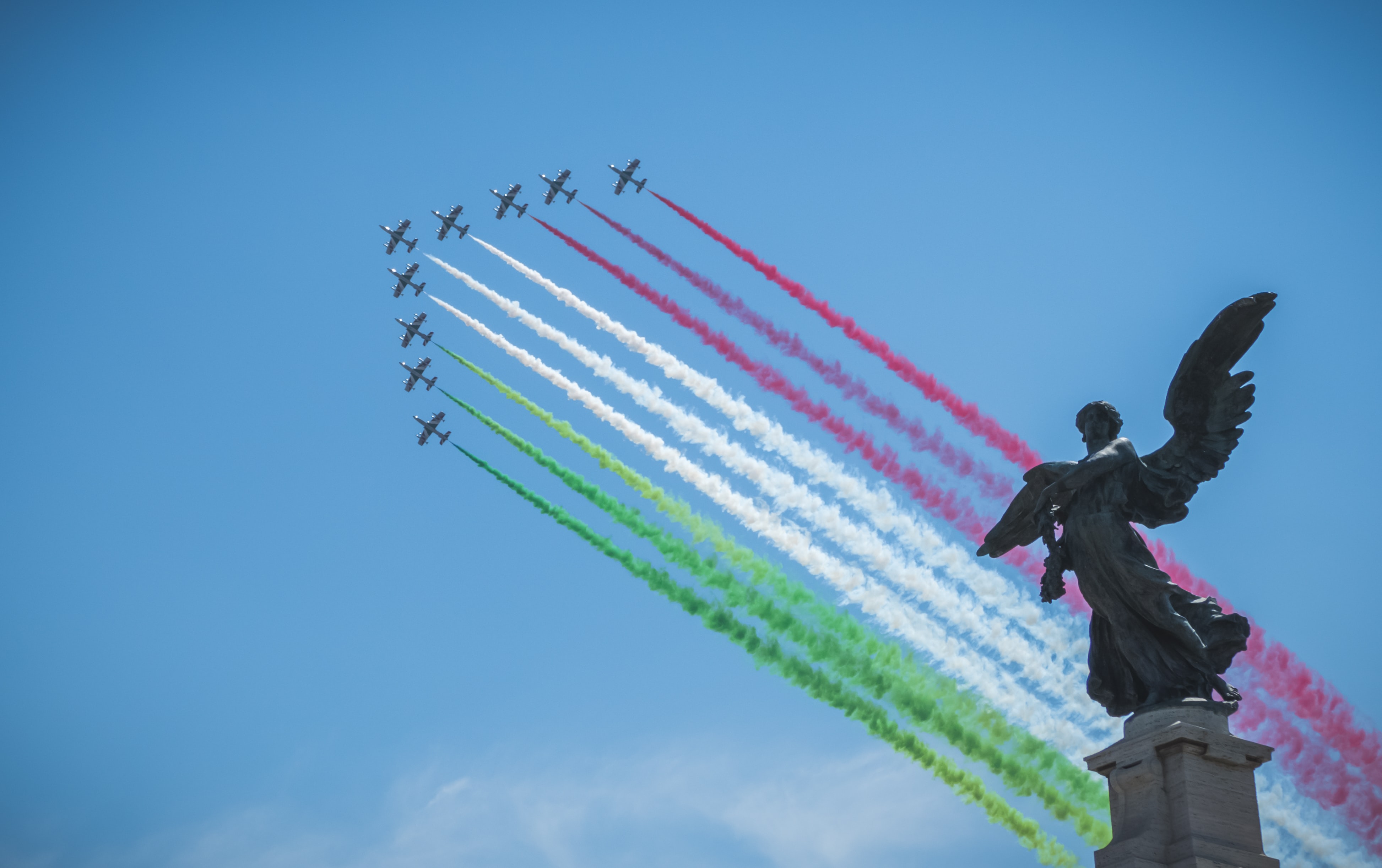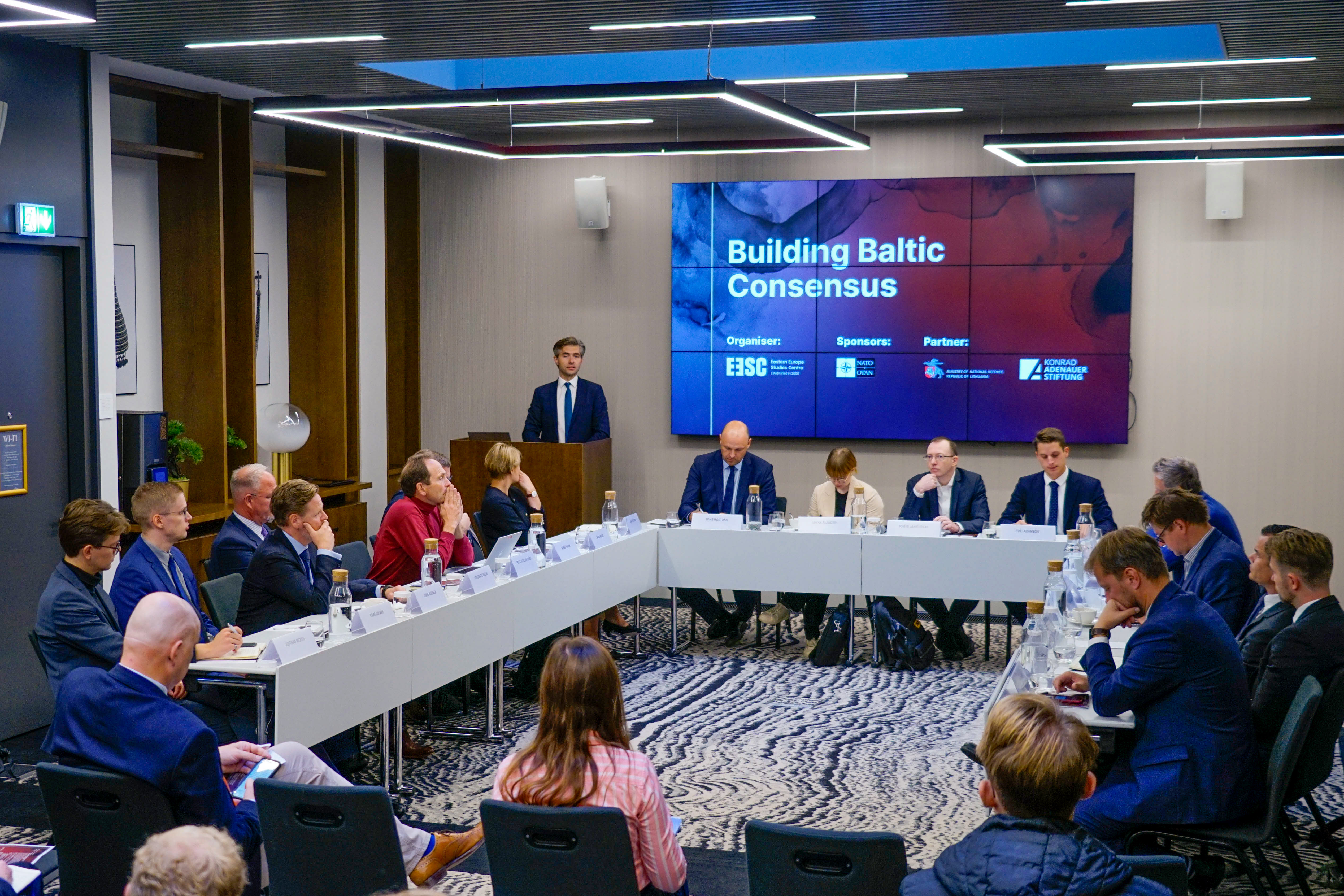You can find the PDF text version by clicking this link.
About the author: Giedrimas Jeglinskas is the Assistant Secretary General for Executive Management at NATO. He has overall responsibility for management of NATO headquarters, and is the Secretary General’s primary advisor for NATO-wide management issues. Before assuming his current post, Jeglinskas served as the Vice-Minister of Defense of Lithuania. Jeglinskas graduated from the U.S. Military Academy at West Point with a BSc in Political Science and Computer Science. He holds an MA in National Security Studies from Georgetown University’s School of Foreign Service in Washington, DC and an MBA in Strategy and Finance from Columbia Business School in New York.
Covid or not, there is no better time to invest in robust deterrence and defense, which can serve as a fundamental layer for and gateway to a prosperous society. Thus, the role of policy-makers, in Lithuania and other nations on NATO’s Eastern flank remains vital in rallying attention and resources toward security and enhanced cooperation among the Allies. Running up that hill is now more crucial than ever before.
The volatility of modern times manifests in the geopolitical actions of revisionist and rising powers, destabilizing economic shocks, and polarizing increases in inequality. Covid further accelerated these trends – from technology to commerce, from the way people work to how we live. Central and Eastern European nations know all too well that in such times, geography matters, while historical narratives require diligent guardianship.
One way to stay sane in uncertain times is to focus on the essentials, such as deterrence, which enables and augments all other elements within a society. Cultural, economic, social, educational activities will reach their full potential only when the foundation of security is established and people are free to create.
Nationally, deterrence is our ability to deter an adversary and can be achieved by focusing on three pillars: defense capabilities, societal resilience, and strong partnerships. While capabilities and resilience are, by and large, a national responsibility, our ability to partner with Allies is a function of unrelenting diplomacy, technological interoperability, and continuous collaboration.
Lithuania’s national security strategy has been a major driver in boosting defense investments. In 2019, Lithuania reached a major milestone of 2% of GDP for defense expenditure. But even more essential for our national security was a joint agreement by all major political parties to raise defense spending to 2.5% of GDP by 2030. The agreement, signed before the Covid pandemic, indicated an ambition of relevance for the country’s security.
To put it bluntly, if we say that security is important, let’s put our money where our mouth is by reflecting these priorities in the formation of the budget. A commitment to the decade-long upward vector for defense is exactly what is required to counterbalance years of underinvestment in capability-building and infrastructure programs. That’s how deterrence is made relevant.
The same goes for building a resilient society – a community of people who are resistant to threats, smart about information consumption, and conscious of the wider narrative and global trends. Lithuania has taken important steps in building such a society with the re-instatement of conscription, empowerment of the Riflemens’ Union (a civic NGO), a reinvigorated National Guard, and a coordinated effort to counter hybrid threats. As national authorities have successfully debunked a number of attempts to discredit and misrepresent, Lithuania’s population seems resilient to disinformation and fake news storms.
By definition, civic initiatives are essential for a vibrant civil society, but so is the government’s financial backing and coordination. Covid has demonstrated the importance of a “whole of government” approach to fighting pandemics, and the responsibility to cultivate societal resilience is, at its core, an interagency task. And we are not alone here. NATO recently updated its baseline requirements for national resilience, which underpin what can be accomplished in the resilience domain.
In a complex and multi-stakeholder geopolitical ecosystem, the strength of our partnerships with Allies, both at a multilateral and bilateral level, determines the strength of our deterrence. This alignment starts with fundamental questions. Do we share the same values? Do we see threats in a similar light? Can we agree on the path forward? It is fair to say that a Lithuanian policymaker would answer with a resounding yes to all.
As we scan the volatile security environment, NATO’s role is clearly as relevant as ever. NATO’s mission remains steadfast – to preserve peace and defend freedom. This objective continues to serve as a guiding light for the organization and its member states, and contributes to NATO’s attractiveness as the alliance reaffirms its Open Door policy.
NATO also continues to adapt to new security challenges. In a constantly evolving environment, deterrence is but one of many tools that the alliance strengthens to remain relevant. Since 2014, NATO has implemented its largest reinforcement of collective defense in a generation by strengthening its military posture from the Baltic Sea to the Black Sea. In a sign of cohesion and ability to deliver, NATO-enabled enhanced Forward Presence (eFP) battle groups demonstrate deterrence in action by bringing the troops to NATO’s Easternmost members – Estonia, Latvia, Lithuania, and Poland.
Host nation support plays a vital role in making sure these deterrence measures work. Allied presence (“boots on the ground”), whether in the form of eFPs or bilateral deployments, was enabled by investments that Lithuania has been undertaking for years now. When German, American, or Polish troops come to Lithuania to train, their objective is to build readiness, which requires appropriate infrastructure and support elements. Thus, the strength of partnerships is gauged by our ability to stay connected with our partners and our focus on improving that infrastructure nationally.
So how do we go on from here? 2020 has been an extraordinary year. The worldwide Covid crisis served as an economic shock by collapsing demand and disrupting global trade flows.
Governments across the North Atlantic have responded to the health crisis with unprecedented (trillions-worth) financial measures, which helped alleviate the immediate socio-economic and health pressures. Yet, as we learn to live with the virus, it has become clear that global economies have entered a new financial paradigm marked by a dramatic rise in public debt.
Here lies the biggest risk to the future prosperity of Lithuania (and probably many other nations). Sooner or later governments will have to digest these rising debt levels with, hopefully, higher growth and/or inflation. But recessions also cannot by discounted, keeping in mind that economic downturns are in capitalism’s DNA.
Public spending will be affected (because debts need to be repaid), only the degree and timing of the impact remains in question. As previous financial crises have shown, when money becomes too tight too mention, the risk is that defense and security may be de-prioritized.
But the world around us continues to evolve. The latest events in Belarus have shown that the neighborhood remains volatile. Microsoft’s new “Digital Defense Report” starkly reminds us that over 50% of all government-backed cyber-attacks have originated in Russia, while Russia’s proxy war in Ukraine remains unresolved.
Lithuania has succeeded by ramping up its focus on defense, but the treacherous regional geopolitics and socio-economic volatility arising from Covid demand that we continue with the same focus and intensity. Lithuania is a member of the most successful defense alliance in history. We are building our military’s capability, and we have a society that has never been more resilient than today. If you asked me, I’d say we are in the best position in the history of our nation. But there is no time to rest and we have to keep running up that hill.


